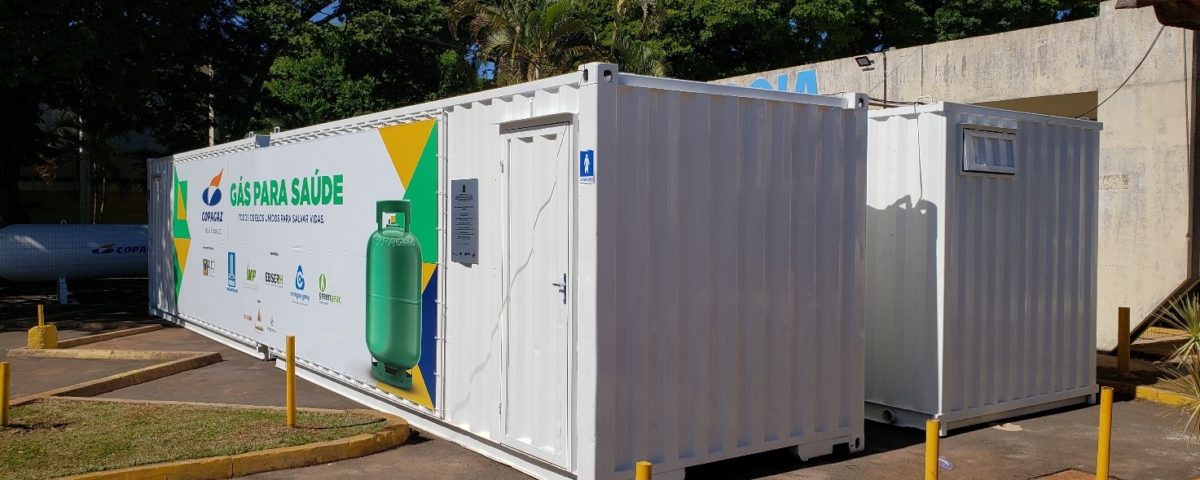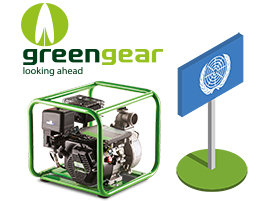
Greengear and United Nations
February 20, 2020On Monday the 25th of May, we participated in a momentous event for our LPG industry, the inauguration in Brazil of the Cavagna Group/Copagaz/Greengear/UFMS (Federal University of Mato Grosso do Sul) Hospital project.
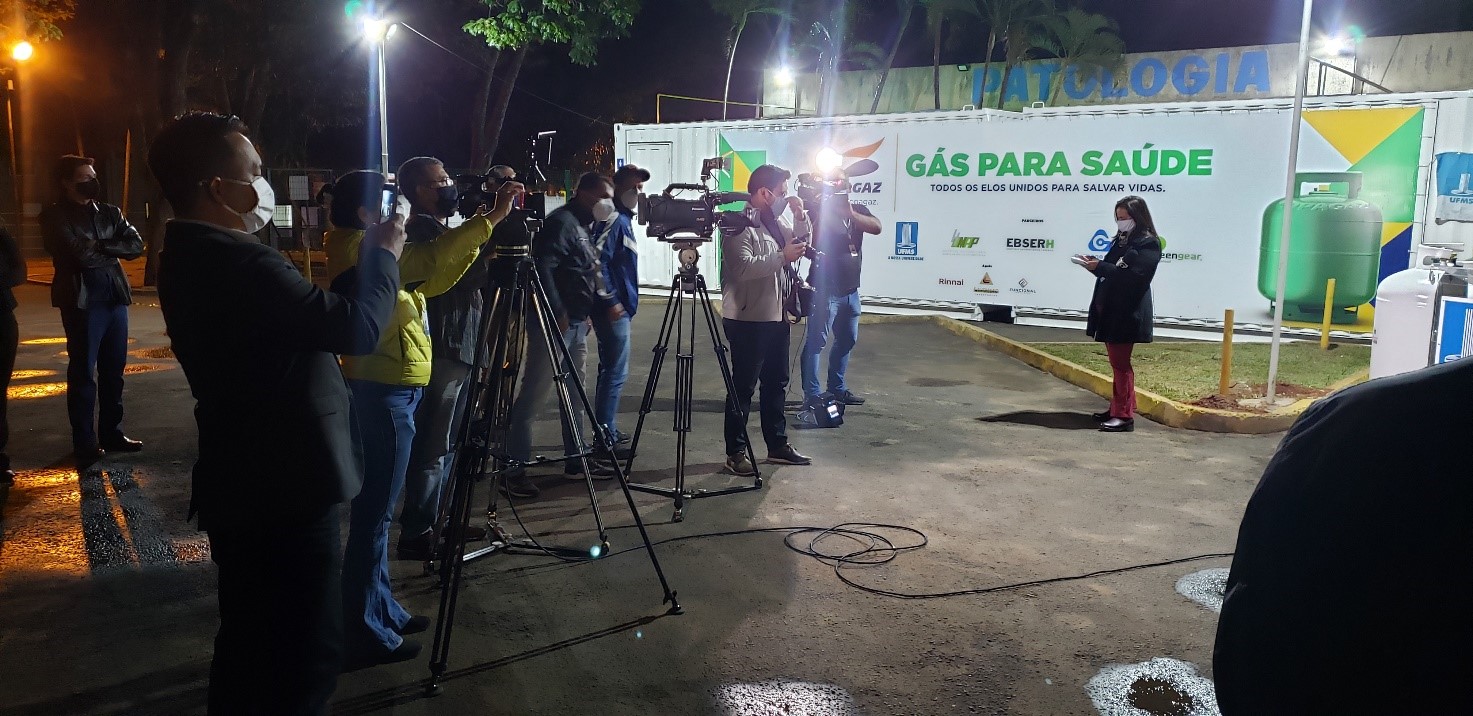
This project is about fighting against a very relevant issue that is affecting all of us, battling against COVID-19. As of late May, Brazil had the highest number of confirmed cases in the world, surpassed only by the United States. The pandemic has triggered a number of responses from different sources to try to contain the virus. In Mato Grosso do Sul Hospital, there was the idea and need to set up a temporary area for hygiene purposes for the staff of the hospital, including bathing areas and dressing rooms, because the hospital does not currently have one available. These are set up in 4 shipping containers outside of the hospital as per the below image, powered by a Copagaz tank that you can see in the background.
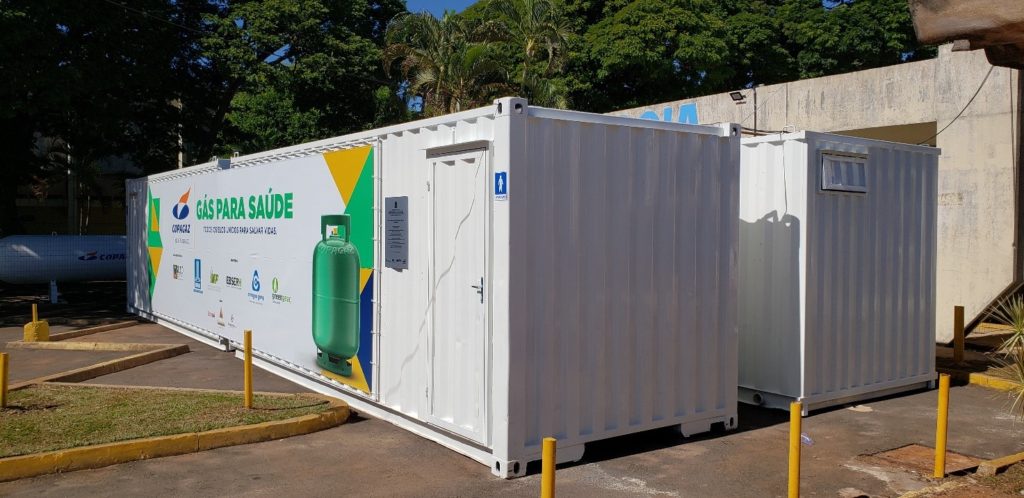
In the creation of this new area for the health professionals, electricity is necessary for these portable units, to enable lights and efficient functioning of the machines and equipment inside. This is where Greengear LPG powered generators can provide a solution that guarantees many benefits, not only in regards to COVID-19 outbreak, but also for our LPG industry as a whole.
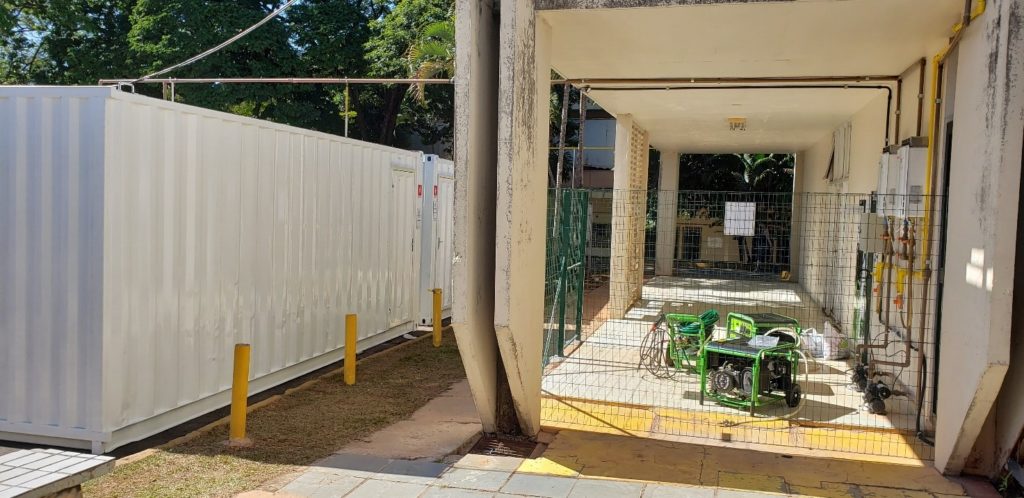
The generator GE-7000 powers the four containers (lights inside), 2 expansion tanks (0,37 kw each), 2 water heaters (89 w each) and the lights outside.
The generator GE-8000 will be used as backup power when needed. In fact, it will power 2 machines used to store test plates that have analysed patients’ blood. If the electricity fails and time passes, this vital information will be lost, not to mention the economic impact of this (almost 4.000 Reais lost by each machine).
The GE-3000 will be used by the Hospital for other small equipment on a portable basis when needed.
In addition to generators, a Greengear LPG high powered pressure washer is utilized for the washing of the areas around the container – the pavements, the entrances and the corridors to the hospital – leaving the area sanitized every day for the workers on entrance and exit of this area.
Having these portable units means giving the health professionals a safe area where they can feel removed and secure from the chaos of the current situation.
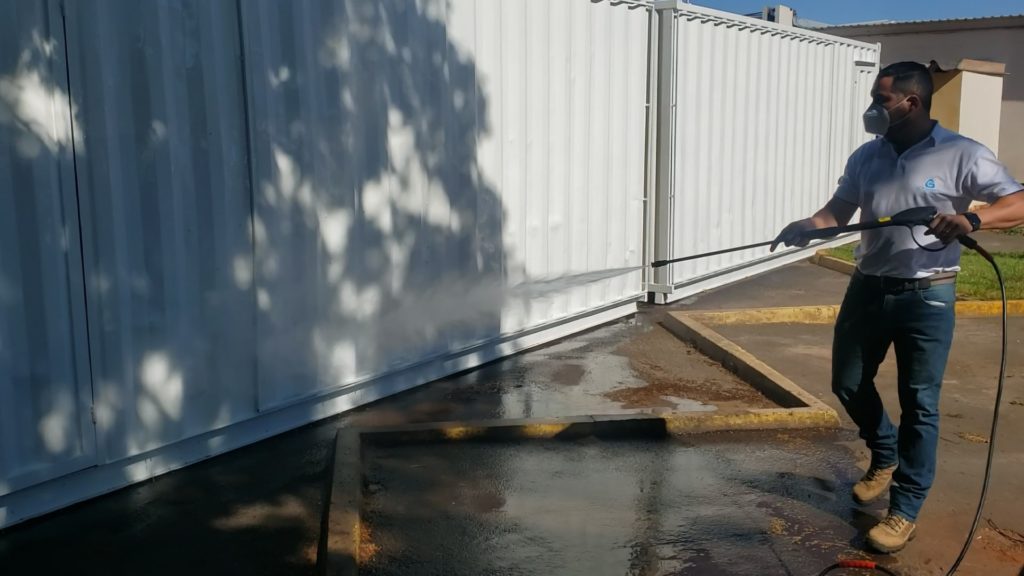
LPG plays an important role for sustainable development in Brazil. It can reach isolated areas without significant infrastructure investment and can displace dirty fuels such as wood burning fires and charcoal, alongside gasoline and diesel too.
Notable Benefits of LPG for these applications
- Storage of LPG is easier than with gasoline. LPG is safer and usually locked in a cage (as per image at the hospital), avoiding expiration problems like gasoline.
- LPG guarantees cleaner environmental conditions (no exhaust smell) rather than using gasoline or diesel fueled areas, which is vital especially in sensitive areas (hospital – prime example, where currently respiratory conditions are of the utmost importance).
- LPG allows use of the same cylinder/tank for many different applications.
- Using LPG in emergency situations, such as this, is ideal as it ensures easy and quick operation, without waiting for the engine to cool down before you refuel. The change of gas is quick and easy, just a simple plug and play solution.
This project is special for a number of different reasons, firstly, because the laws in Brazil have always prevented the use of LPG in small engines.
As a matter of fact, the legislation Resolução ANP N° 49, Art. 33 says:
“The use of LPG is prohibited in:
1 – engines of any kind, including for automotive purposes, except forklifts and industrial cleaning equipment powered by internal combustion engines;
2 – steam room;
3 – boilers; and
4 – pool heating, except for medical purposes.
Cavagna Group Brazil alongside Copagaz and other entities have managed to get this project approved by the Agência Nacional do Petróleo, Gás Natural e Biocombustíveis (ANP), which has created noise within the LPG industry about these regulations being specially approved for this project.
This is why this project has been unique and the first of its kind. The legislation has been lifted in order for this project to go ahead. This could therefore open many doors for the LPG industry and equipment manufacturers.
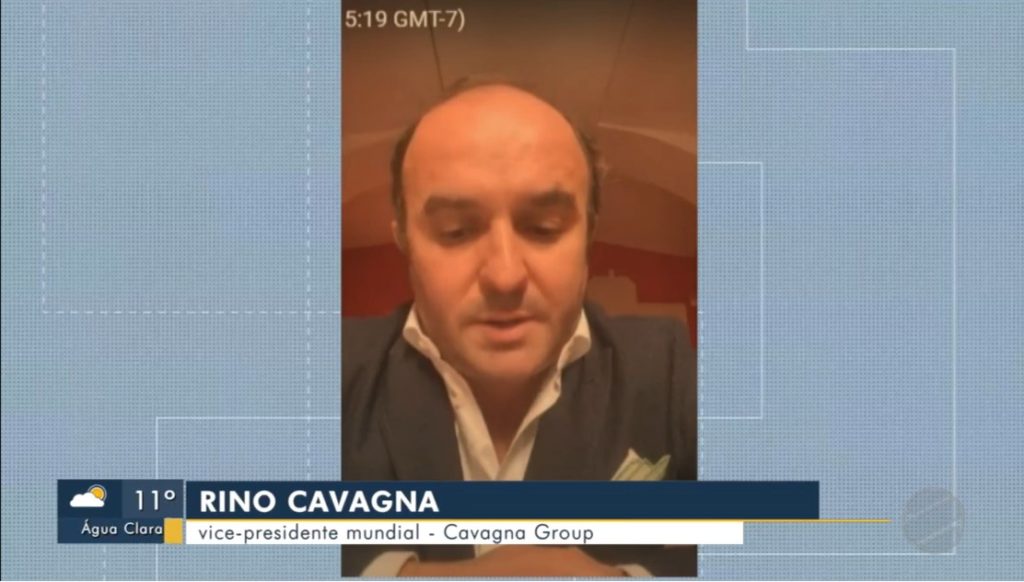
Our team at Cavagna Group Brazil has worked endlessly on pushing the Greengear project to allow LPG use in small engines and equipment for projects such as this one, benefiting also the gas companies in Brazil with increased consumption rates in new applications. The inauguration was done with safe precautions at the hospital, with visible distance and virtually with all parties. Alongside the notable speakers included a speech from Rino Cavagna, Executive Vice President of Sales for Cavagna Group, who explained how the cooperation with Copagaz and the University has been an important step for our industry with our equipment.
“Every need for the sanitation infrastructure will be provided for by our Greengear LPG power generators and in addition to generators, the University Hospital will also use a high pressure washer to wash the institution’s entrances and corridors“.
Brazilian TV channel Globo, the largest commercial TV network in Latin America, showed the inauguration throughout the day and night, documenting the momentous event.
Watch the video HERE
Also logging in virtually, the president of the Zahran Group (Copagaz), Caio Turqueto, followed the ceremony and spoke about the importance of this project.
“I think that during this pandemic, this will be the new normal – the initiative, the provocation, the solidarity and the search for alternatives to serve society. When the university approached us, requesting that this project could be implemented, due to the portability that the LPG has, we immediately made ourselves available. Because the biggest energy package we have today is the gas cylinder. And the ANP promptly gave us authorization for implementation. So it is this set of attitudes that builds a new society and builds a new destiny”.
ANP director Felipe Kury, who authorized the generation of energy using LPG on this exceptional case, spoke of the importance of this initiative, using LPG as an energy matrix is considered a pioneer and very important.
“This opens up space for a regulatory review that we have planned for this year and that can open up many opportunities for investment and economic development in the region. I see Copagaz as a very innovative company.”
This project will be monitored by UFMS researchers who will liaise with the ANP about the use of gas as a source of energy for its further review, opening a huge opportunity of displacing traditional fuels that have been blocked due to this regulation in the past.
We are extremely proud of everyone who has been involved in this project, with special thanks to Leonardo Silva and Geisson Alvino and the rest of our Cavagna Group Brazil team, from the corporate responsibility aspect to the changing of legislation for our exceptional energy as a fuel source. Thank you to everyone and we hope that although albeit a small initiative, that can hopefully make a big difference.
We send our best wishes to Brazil and to the rest of the World during this challenging time.
For further information, please contact:
Rebecca Ball – Sales Manager
e-mail: [email protected]
mob: +39 342 7478234



